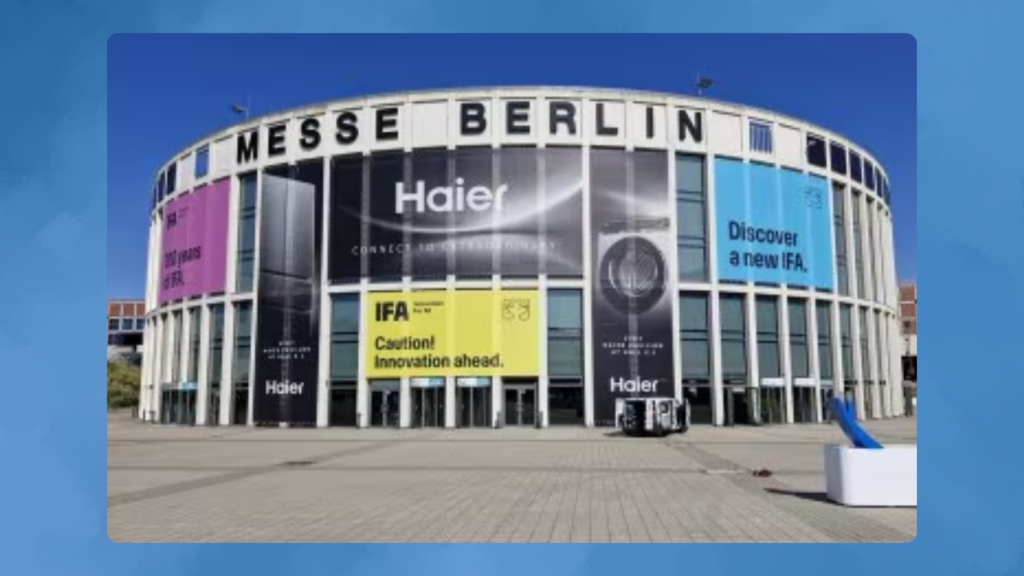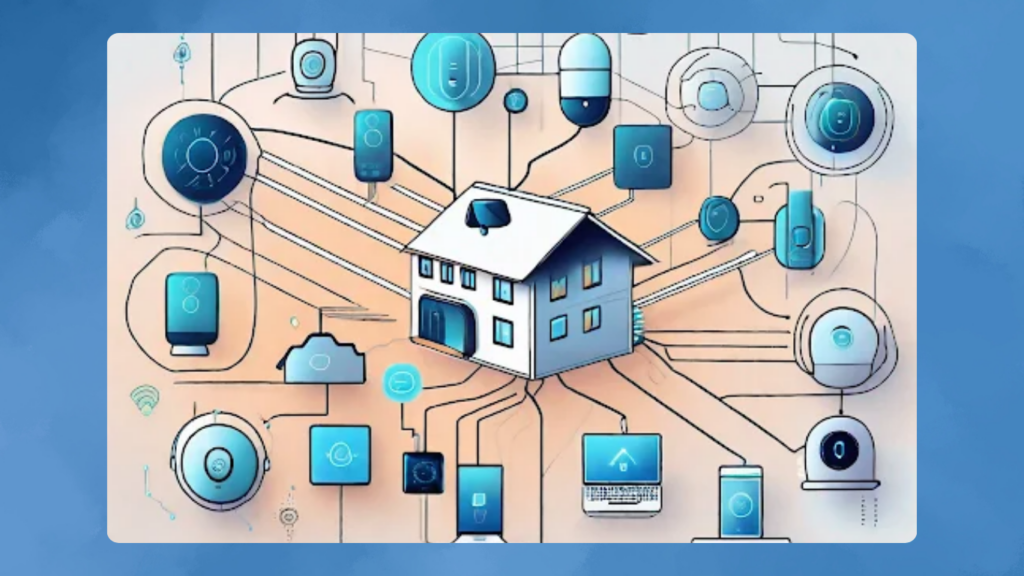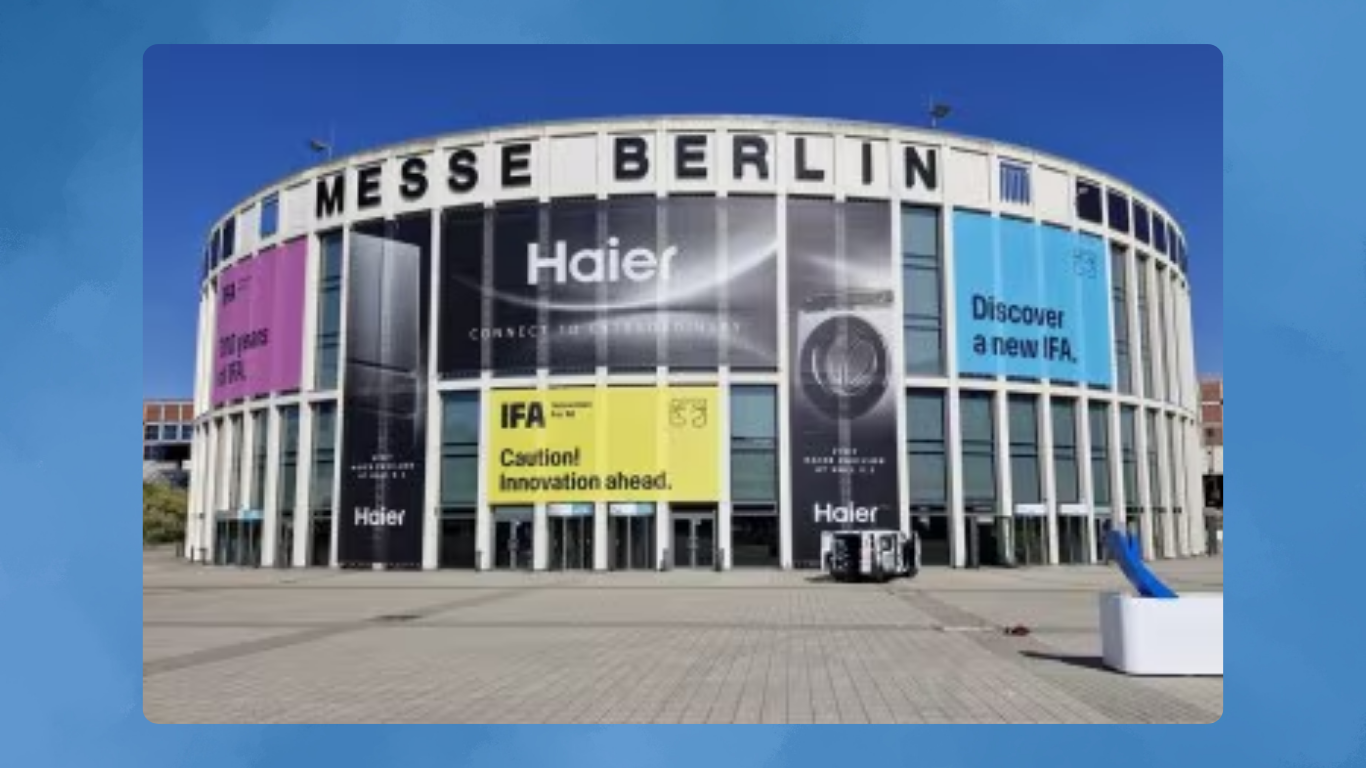Every year, I find myself back in Berlin at the start of September, drawn to the annual IFA show—the ultimate playground for gadget lovers. It’s where the future of tech unfolds, and if you’re into home appliances, it’s a must-attend. What was once the Berlin Radio Show, now simply IFA, has evolved into a global hub where retailers from all corners—including Aussie powerhouses like Harvey Norman, JB Hi-Fi, and The Good Guys—hunt for the next big thing to stock in stores.

Last year, AI was the buzzword, thanks to ChatGPT grabbing headlines. But 2024? It’s the year AI becomes more than just a headline. It’s everywhere. Every smartphone is now packed with AI, and trust me, after this year’s show, your next fridge, washing machine, or TV will come with AI onboard, ready to make your life smarter.
Samsung stole the show with a demo that was nothing short of mind-blowing. They upscaled a century-old video of Albert Einstein speaking at IFA in 1930, using AI to not just sharpen the image but also clean up the audio. If you’ve ever seen old footage stretched to fit a big screen, you know it can look terrible. But AI upscaling is different—it doesn’t just blow up the picture, it adds details that weren’t there, making the video look like it was shot yesterday.
The sound enhancement was just as impressive. Samsung’s AI stripped out the background noise picked up by a near-century-old microphone and amplified Einstein’s voice to studio quality. Sure, it’s a flashy demo for a press event, but the tech has real-world implications. Imagine streaming a grainy YouTube clip on a 75-inch TV—without AI-driven processing, the experience would be subpar at best. Samsung’s message was clear: with their AI, your old, low-quality content will look and sound better than ever.
Of course, it wasn’t just about TVs. AI was the star in every corner of the home. Washing machines can now detect the type of fabric you’re washing, adjust the cycle for the perfect clean, and even adapt to your personal schedule. It’s as if your appliances are finally getting to know you.

LG also leaned into AI but put a human spin on it, branding it as “Affectionate Intelligence.” They created zones at the show, like “Second Youth,” which was aimed at helping older adults live independently for longer. From robot ironing boards to smart vacuums, the tech on display was all about making life easier for the elderly.
The big challenge? Getting all these devices to talk to each other seamlessly. For Samsung and LG, the answer seems to lie in integrating everything into the devices we already love—our phones, TVs, and even smart fridges with built-in voice assistants like Samsung’s Bixby.
I had a one-on-one with Samsung’s head of Lifestyle Products, Mr. Wonki Kim. We chatted about their expanding TV lineup, particularly “The Frame” and “Serif” models, which have become icons in their own right. Despite tough economic conditions, these products have continued to grow in popularity. Wonki Kim hinted that 2024 would bring even more surprises, with new innovations already in the pipeline.
But Samsung doesn’t always win in every category. The projector market, for example, has fierce competition from brands like Hisense. Wonki Kim admitted that while Samsung leads in TVs, they’re still learning how to engage customers in the projector space. It’s a different ballgame, and they’re taking the time to understand what users really want from these products.
As with any tech show, there’s always one product that steals the limelight, and this year, it was Hisense’s 163-inch MicroLED TV. Yes, you read that right—163 inches. It’s enormous, ridiculous, and, honestly, I want one.
AI is no longer just an abstract concept. It’s making home appliances smarter, more connected, and more responsive. The vision of a truly integrated smart home is no longer a dream; it’s here, powered by AI and ready to make everyday life a little easier.

Subtly charming pop culture geek. Amateur analyst. Freelance tv buff. Coffee lover
